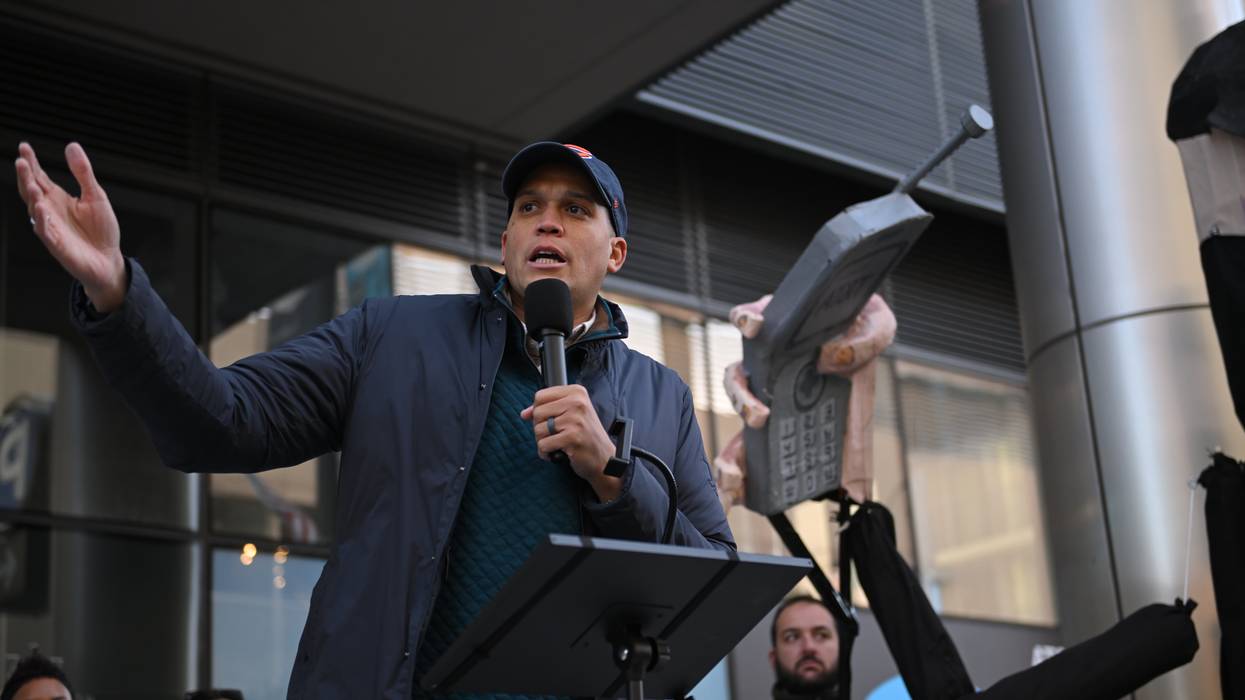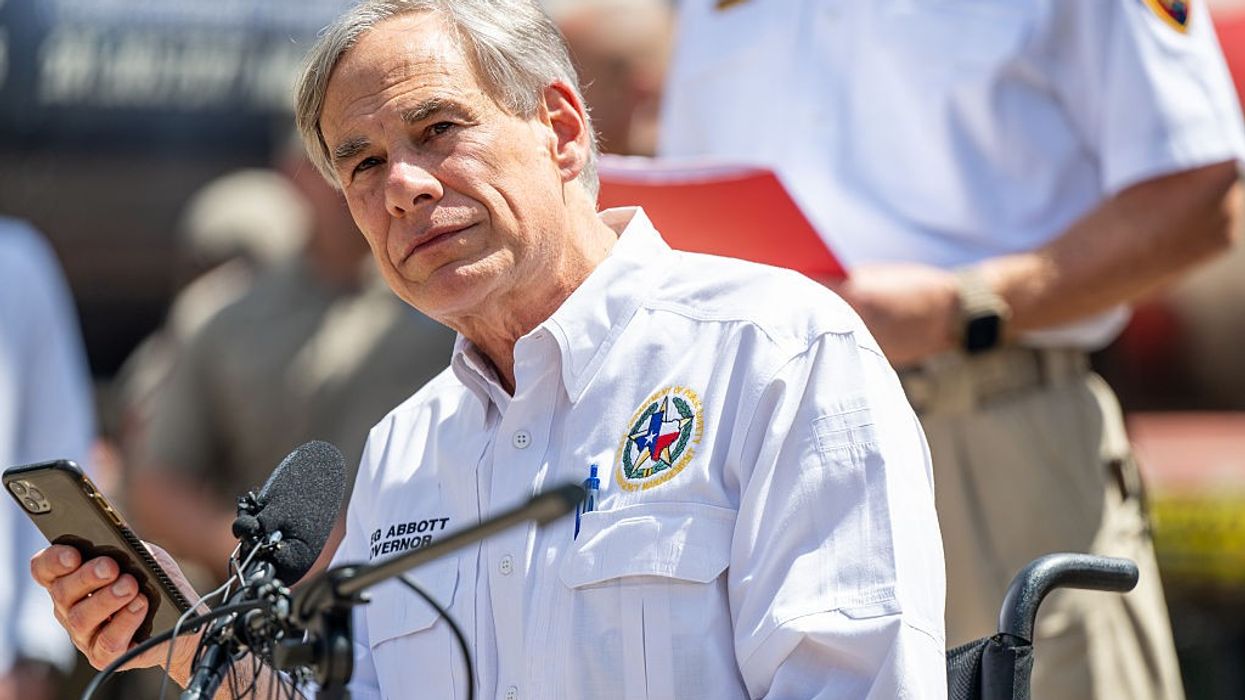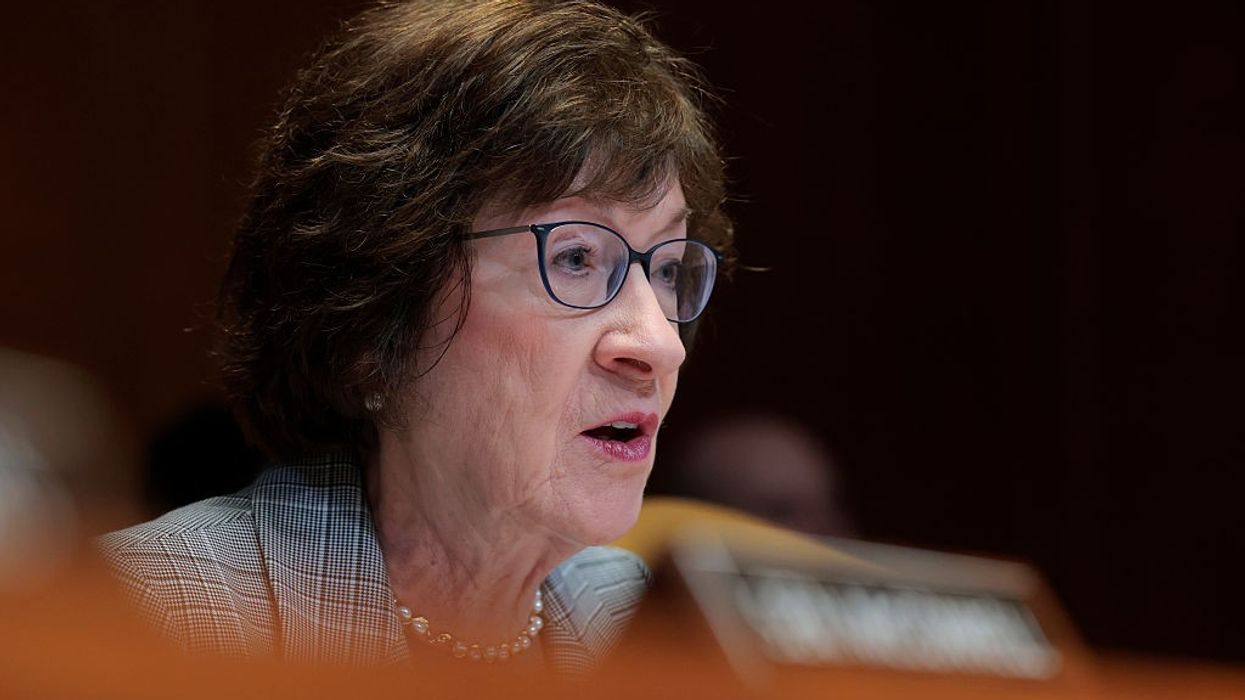‘You Should Be Outraged’: Candidates Sound Alarm on Stealth AIPAC Meddling in Illinois
"They’re using shell organizations to try to crush progressive candidates in secret," said the chair of the Congressional Progressive Caucus. "We can’t let them get away with it."
Progressive congressional candidates in Illinois sounded the alarm Tuesday over efforts by AIPAC, the pro-Israel lobbying organization, to influence congressional races in the state using methods that appear designed to conceal its role as Democratic voters increasingly view the group as politically toxic amid the ongoing genocide in Gaza.
“This isn’t what Democratic voters want. Even AIPAC knows it, which is why they’re hiding their name behind a shady super PAC and their agenda behind whatever ad they think will poll best," Junaid Ahmed, who is running to represent Illinois’ 8th District in the US House, said during a press conference alongside other Democratic candidates.
On Wednesday, The Washington Post highlighted two organizations—with names that betray no association with the pro-Israel lobby—that "sprang into existence late last month" and waded into the Illinois congressional contests.
Elect Chicago Women and Affordable Chicago Now!, according to the Post, "appear to use vendors who have worked with AIPAC-affiliated efforts in the past."
"Elect Chicago Women uses a mail vendor that shares identifying information with a mail vendor used by AIPAC’s super PAC, United Democracy Project," the newspaper reported. "UDP’s vendor for phone banking also has the same address as the vendor listed by Affordable Chicago Now."
Illinois State Sen. Robert Peters, a Democratic candidate in the 2nd Congressional District, said AIPAC's efforts to obscure its involvement in the races amount to an admission of the lobby's growing unpopularity with voters across the US. A recent poll found that nearly half of Democratic voters in competitive congressional districts said they could "never" support a congressional candidate they knew was backed by AIPAC.
"So they’re trying to be slick and to use these shell organizations to be able to move money to support candidates who are willing to support the right-wing agenda," Peters said Tuesday.
Daniel Biss, a progressive running to succeed retiring Rep. Jan Schakowsky (D-Ill.) in the 9th Congressional District, decried the "millions of dollars in AIPAC-backed coordinated donations and dark money super PAC ads flooding each of our districts."
“We are here, united, as progressives to say that this kind of massive dark money barrage is exactly the kind of corruption we must stand against,” Biss said at the Tuesday press conference. “It is wrong for our party, wrong for our voters, and wrong for our city. Democrats will not let right-wing groups buy Illinois’ 9th District or any of these seats."
Watch the full press conference:
Drop Site and The American Prospect reported earlier this month that AIPAC "road-tested its stealth approach in a 2024 House primary in Oregon that pitted Susheela Jayapal, the sister of Rep. Pramila Jayapal (D-Wash.), against physician Maxine Dexter."
"Dexter raised relatively little money throughout much of her campaign, then saw a last-minute deluge organized by AIPAC coupled with outside spending through super PACs, which themselves turned out to be funded by AIPAC," the outlets noted. "The timing of the donations meant that there was no meaningful transparency before voters went to the polls, and Dexter expressed a mixture of ignorance and umbrage when her opponents suggested the money actually came from AIPAC."
In the Illinois contests, AIPAC appears to be using similar tactics, secretly funneling money to preferred candidates through super PACs with no outward affiliation with the pro-Israel lobbying group. The primary beneficiaries of the campaign cash, according to Drop Site and The American Prospect, are Laura Fine in the 9th District, Donna Miller in the 2nd District, and Melissa Bean in the 8th District.
Groups linked to AIPAC have so far spent an estimated $4 million in support of Miller, Bean, Fine, and Melissa Conyears-Ervin.
US Rep. Greg Casar (D-Texas), chair of the Congressional Progressive Caucus, said Wednesday that "if you care about the future of the Democratic Party, you should be outraged about what AIPAC is doing in Chicago right now."
"They’re using shell organizations to try to crush progressive candidates in secret," said Casar. "We can’t let them get away with it."


